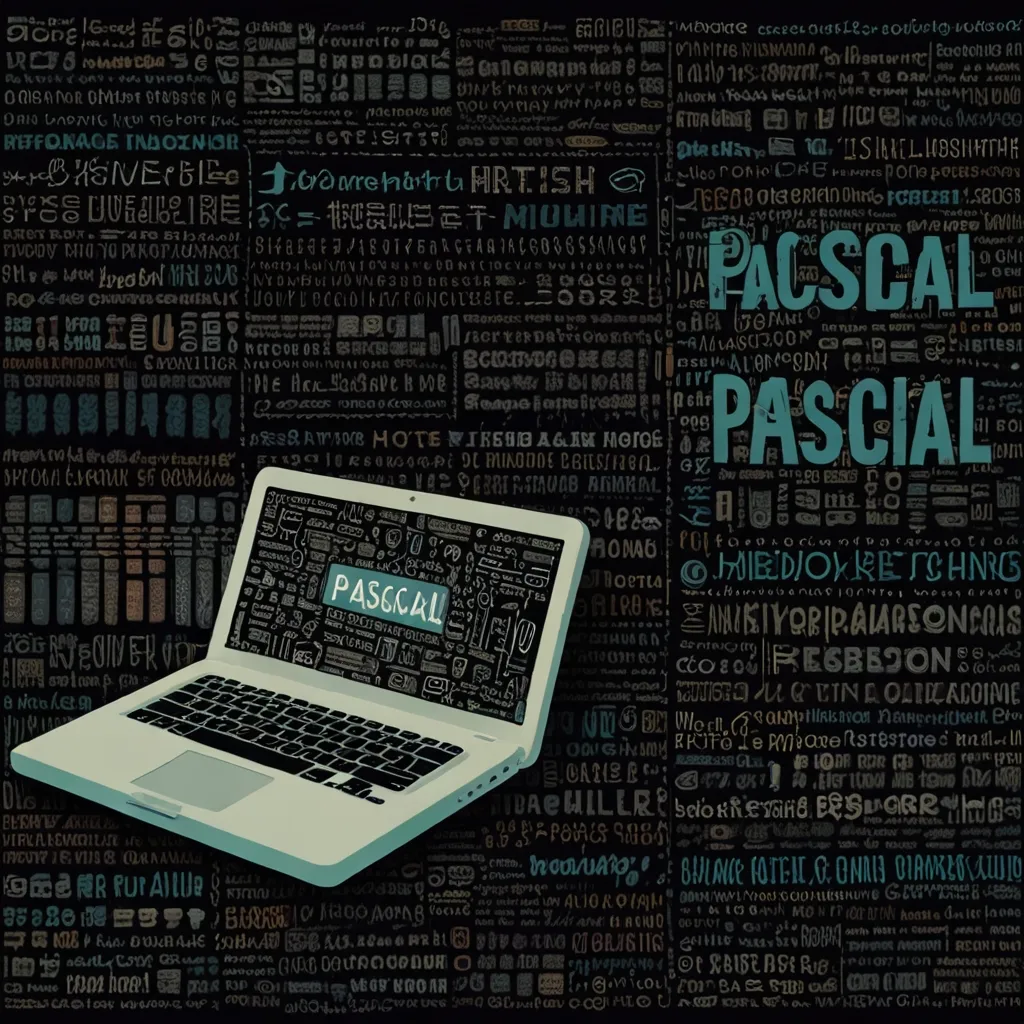Pascal has always been a bit of a classic in the world of programming languages. Named after the 17th-century mathematician and philosopher Blaise Pascal, it’s been a mainstay in educational settings and smaller industrial applications for decades. Built by Niklaus Wirth, a Swiss computer scientist, back in the late 1960s, Pascal aimed to push forward the best coding practices through a structured approach to programming and data structuring.
Touted initially as a teaching tool, Pascal’s simplicity and easy readability made it a favorite for those just dipping their toes into the world of coding. Wirth had his eyes set on creating a language that was not only efficient but also straightforward to understand, promoting a well-organized method of coding that’s especially appreciated in academic circles. In the ’70s and ’80s, Pascal was a major player in many undergraduate computer science programs.
One of Pascal’s standout features is its procedural nature. What this means is that the code is broken down into smaller, bite-sized procedures and functions. This modular structure isn’t just great for making code more readable; it also makes debugging and maintaining it so much easier. Pascal’s syntax, boasting simplicity and clarity, avoids the pitfalls some other languages like C++ or Python might encounter due to their case-sensitivity. It includes basic data types like integers, real numbers, characters, and booleans, along with more complex structures like arrays. Ideal for those just starting their programming journey, Pascal makes learning the ropes a breeze.
Pascal took a stand against the use of goto statements, which were common in earlier languages but often led to what’s known as spaghetti code – a tangled mess that’s tough to unravel. Instead, Pascal promotes control structures like if-then-else statements, for loops, and while loops, which foster a more organized and readable code. Here’s a taste: a simple “Hello World” program in Pascal would look something like this:
program HelloWorld;
begin
writeln('Hello, World');
end.
It’s clear, it’s structured, and honestly, it’s kind of charming in its straightforwardness.
Another big thing with Pascal is its platform independence. Pascal code can be compiled and run on various operating systems and architectures, making it a solid option for creating cross-platform applications. Whether you’re a Windows enthusiast, a macOS user, or a Linux aficionado, Pascal’s portability ensures that your code can hop between different environments without much hassle.
Over time, Pascal evolved from being a purely procedural language to embracing object-oriented programming (OOP) with variants like Object Pascal. This shift allowed developers to write more reusable and modular code. Look at Delphi, for example – it utilizes Object Pascal to combine the benefits of Pascal’s structured programming with the advantages of OOP.
Even though newer languages have taken the spotlight, Pascal still holds its ground in several industrial and commercial applications. Its reliability and performance are particularly valued in places where dependability is critical, like embedded systems or industrial control systems. Believe it or not, apps like Total Commander and Skype were developed using Delphi, which is based on Object Pascal.
The educational value of Pascal is really where it shines the brightest. It’s been the go-to starting point for countless high school and college courses introducing students to programming. Thanks to its simplicity and structured approach, teaching the basics of coding with Pascal is almost like setting up training wheels before letting the new tech enthusiasts ride off into more complex languages.
Historically, Pascal’s imprint on the programming world is profound. It played a pivotal role in modern language development, with versions like UCSD Pascal helping to popularize the language across different platforms, including the iconic Apple II. Not to mention, the early Macintosh OS and even applications like Adobe Photoshop found their beginnings in Pascal.
Even in the modern world, Pascal still has a place. Its user-friendly nature ensures it remains a beloved teaching language. Plus, its robust type-checking system and procedural approach make it a reliable candidate for small-scale industrial applications where stability and reliability are key.
Take TeX, for instance, the typesetting system developed by Donald Knuth – it was written in WEB, a literate programming system based on Pascal. Embedded systems also benefit from Pascal’s efficient and dependable code. And, of course, desktop applications like Total Commander and Skype highlight Pascal’s staying power in commercial software development.
When you bring it all together, Pascal’s history and structured programming philosophy make it a unique gem in the coding world. Its blend of simplicity, readability, and cross-platform compatibility makes it a standout choice for both beginners and seasoned professionals. Whether in educational settings or industrial applications, Pascal’s relevance endures.
In essence, Pascal’s popularity persists because it strikes a harmonious balance between simplicity and power. This middle ground makes it a timeless option for teaching and real-world applications alike. While the programming landscape continues to shift and evolve, Pascal’s influence and practical utility assure its role in the coding community for many more years.






